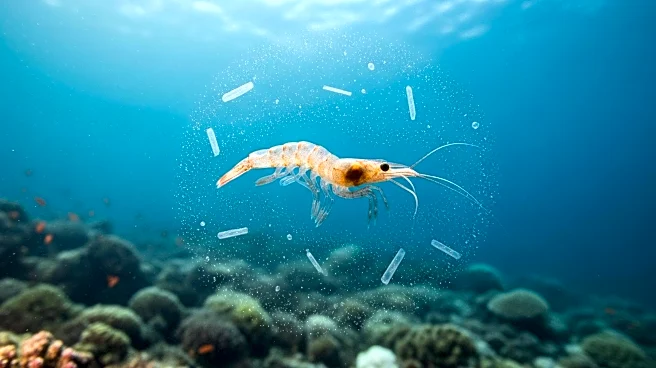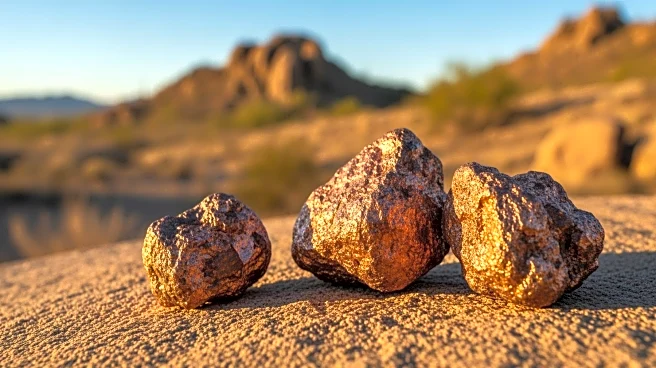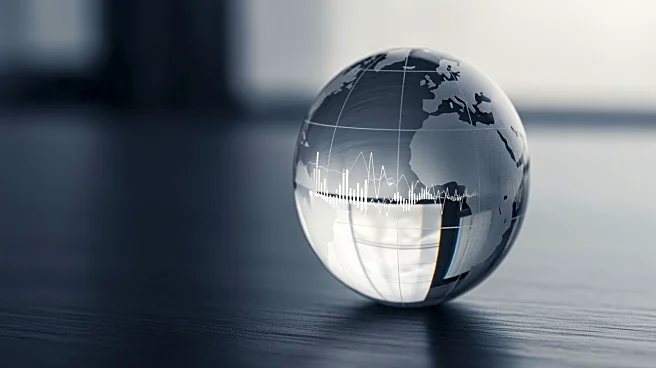What's Happening?
Recent research has uncovered that microplastic pollution is affecting the feeding and digestion processes of Antarctic krill, a critical marine species known for its role in the food chain and carbon sequestration. Krill typically sequester carbon by releasing boluses, which sink to the ocean floor. However, the presence of microplastics causes krill to release boluses more frequently, potentially before they are sufficiently nourished. This disruption could impact krill's ability to sequester carbon effectively, leading to more carbon remaining in the atmosphere and contributing to global warming. The study highlights the far-reaching impact of microplastic contamination on marine ecosystems and the vital role krill play in carbon sequestration.
Why It's Important?
The discovery that microplastics interfere with krill's carbon sequestration abilities is significant for global climate change efforts. Krill contribute to the removal of carbon from the atmosphere, and any reduction in their ability to do so could exacerbate climate change by increasing atmospheric carbon levels. This finding underscores the urgent need to address microplastic pollution, which poses a threat to marine ecosystems and the global climate. The study also highlights the interconnectedness of environmental issues, as microplastic contamination affects not only marine life but also broader ecological and climate systems.
What's Next?
Further research is needed to understand the full impact of microplastics on krill feeding and bolus formation. Scientists may explore ways to mitigate the effects of microplastics on marine species and develop strategies to reduce plastic pollution. On a broader scale, efforts to reduce plastic waste and promote plastic-free alternatives could help decrease microplastic contamination in oceans. Policymakers and environmental organizations may advocate for stricter regulations on plastic production and waste management to protect marine ecosystems and support climate change mitigation efforts.
Beyond the Headlines
The study highlights the ethical and environmental implications of plastic pollution, emphasizing the need for sustainable practices and consumer choices. It raises awareness about the impact of human activities on marine life and the importance of preserving biodiversity. The findings may encourage individuals and businesses to adopt more sustainable practices, such as reducing plastic use and supporting eco-friendly products. Additionally, the study serves as a reminder of the complex challenges facing global ecosystems and the need for collaborative efforts to address environmental issues.









